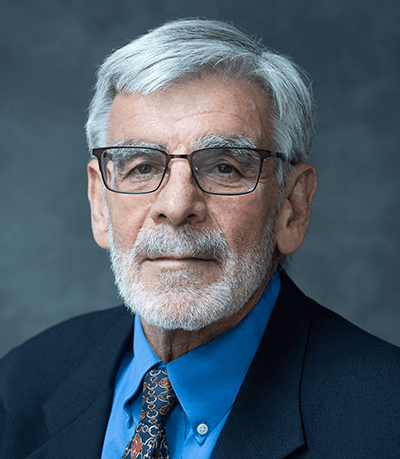
Congratulating Dr. Richard O'Neill
At the core of ARPA-E’s success is our staff, a group of intelligent, passionate, and dedicated visionaries whose technical backgrounds and energy expertise support our mission and define the impactful R&D that we invest in. One such energy expert is Dr. Richard O’Neill, a Distinguished Senior Fellow at ARPA-E.
Dr. O’Neill was recently elected as a Member of the National Academy of Engineering for his leadership and contributions to the liberalization and design of efficient natural gas and electric power markets. Dr. O’Neill has spent his career working on policy around natural gas and the electric power markets, has developed an oil-pipeline rate index by benchmarking to actual industry costs, and increased the efficiency of the Federal Energy Regulatory Commission’s market software. His work has been integral to the structure of ARPA-E’s Grid Optimization (GO) Competition.
We recently sat down with Dr. O’Neill to discuss his career and recent election to the National Academy of Engineering.
First of all, congratulations on your big news! What does it mean to you to be elected as a member of the National Academy of Engineering?
It is an honor for my work over my professional career.
Taking a step back, when did you know you wanted to work in energy?
Energy is an exciting field. My work in energy came about when I was asked to help solve an optimization problem in natural gas. This was followed by a position at the Energy Information Administration (EIA) working on an energy-economic equilibrium model called the Project Independence Evaluation System (PIES).
How did you narrow your focus to natural gas and electric power markets?
From my work on PIES, I was asked to lead oil and gas analysis and forecasting at EIA. Next, I took a job at Federal Energy Regulatory Commission (FERC) reforming the natural gas and oil pipeline regulations. This led to open access to natural gas pipelines, auction-based markets for resale of pipeline capacity, and deregulation of natural gas markets. Next, I moved to benchmark regulation of oil pipeline markets. Next, with the success of the natural gas open access, I moved to require open access of the electric transmission network. This led to Independent System Operators (ISOs) and the creation of auction markets for electricity. Over time, ISOs have grown to supply about 70% of the US market.
How did your academic experience influence your technical background?
I have a BS in chemical engineering, as well as an MBA and a doctorate in Operations Research. This creates a mix of engineering, economics, and optimization. I taught Operations Research and Statistics in the Business School at the University of Maryland, and I later taught computer science and optimization at LSU. It all added to a broad base of knowledge to work on practical energy problems.
How did you come to join ARPA-E, and what has been the focus of your work as our Senior Distinguished Fellow?
I was asked to come to ARPA-E to run the Grid Optimization (GO) competition and support several other programs.
What have you accomplished during your time at ARPA-E?
We finished GO Challenge 2 and are currently working on Challenge 3. We are also working on programs at the distribution level and participation of consumers in ISO markets on a comparable basis to generators and storage.
Looking back on a long and impactful career, what are you most proud of?
It is hard to choose what I am most proud of. Over my career, I tried to make things better by understanding the economics, physics, and politics of the problem at hand and listening to opposing views. Additionally, not allowing setbacks to deter me and sticking to my principles.
